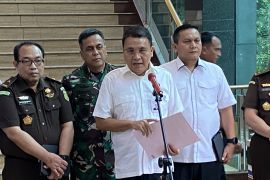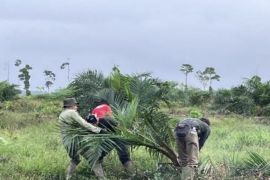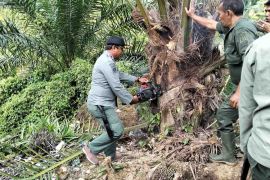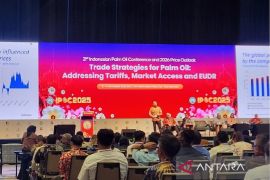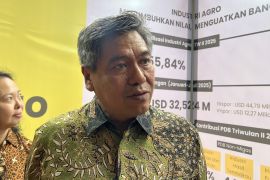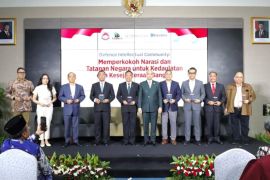Farmers must have access to information and be able to sell palm oil directly to palm oil companies.Jakarta (ANTARA) - The Indonesia Palm Oil Plantation Fund Management Agency (BPDPKS) will not collect palm oil export levies until late 2020 to maintain the crude palm oil (CPO) prices in global markets.
The measure was taken to ease the financial burden of palm oil farmers in the midst of continually fluctuating CPO prices globally, BPDPKS Director Herdrajat Natawijaya noted here on Thursday at a sustainable palm oil discussion on "Farmers Need Sustainable CPO Price Hike" organized by InfoSAWIT media.
Natawijaya remarked that the agency had notified the Indonesian president on the policy
The CPO consumption volume is projected to rise by three million tons for B30 production, as compared to the usage for B20.
Related news: Biodiesel to bolster Indonesia to not seek CPO price hike
Related news: Jambi notches hike in CPO price to Rp6,158 per kilogram
BPDPKS is an agency tasked with collecting, administering, managing, storing, and distributing palm oil plantation funds utilized for the development of human resources in palm oil plantations; research and development; promotion; plantation revitalization; and development of facilities and infrastructure for palm oil plantations.
Guntur Cahyo Prabowo of the Roundtable on Sustainable Palm Oil (RSPO) affirmed that his organization will aid in synergizing sustainable palm oil development at the farmer and corporation levels.
Farmers are entitled to information access and to sell palm oil directly to palm oil companies, circumventing any third party, he affirmed.
Prabowo reiterated the need to expedite the application of sustainable palm oil standardization. Currently, some 20 percent of the global supply of palm oil is responsibly sourced, certified by the RSPO.
In the meantime, the Center for International Forestry Research (CIFOR) averred that the Indonesia Sustainable Palm Oil (ISPO) certification gives buyers confidence, as it carries an assurance that the products using Indonesian palm oil are from sustainable, legal, and good sources.
CIFOR researcher Herry Purnomo remarked in Jakarta on Thursday that as a trust-building measure, the ISPO must be open to independent monitoring by civil society or other parties.
“Transparency will help to evade accusations by anti-palm oil groups that claim Indonesia's palm oil is bad. In fact, much of Indonesia's palm oil is good since it has received the ISPO certification,” he remarked on the sidelines of a policy dialog on “Toward Sustainable Palm Oil in Indonesia.”
Related news: India agrees to reduce export tariff on Indonesian palm oil
Related news: Palm oil exports dented by regulations in destination nations
Translator: Fardah
Editor: Sri Haryati
Copyright © ANTARA 2019

